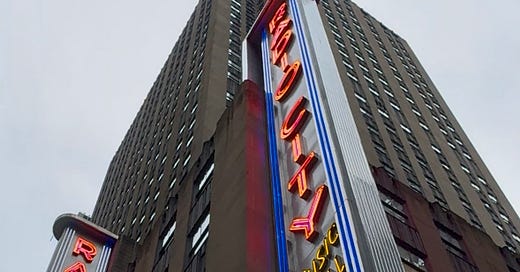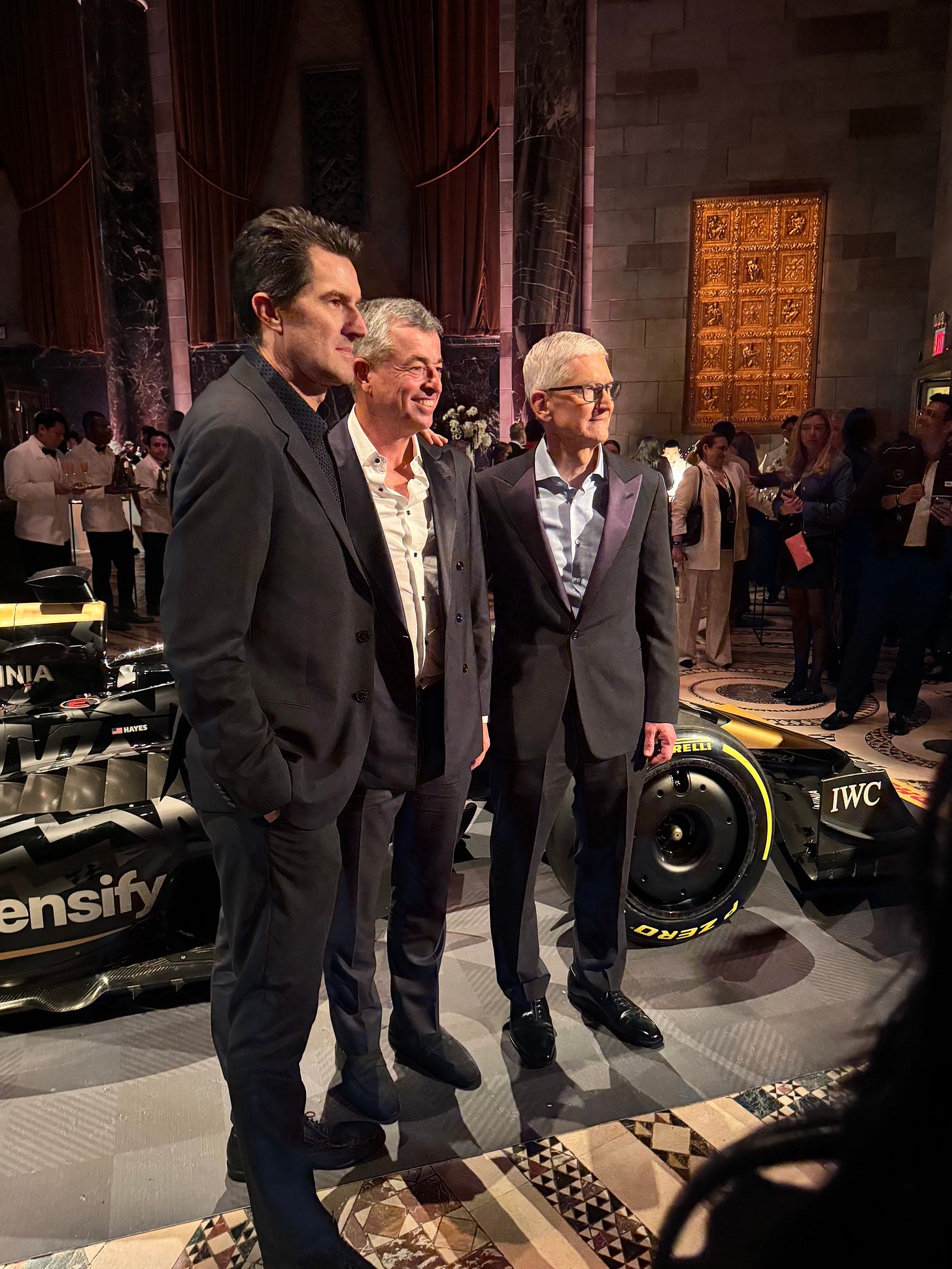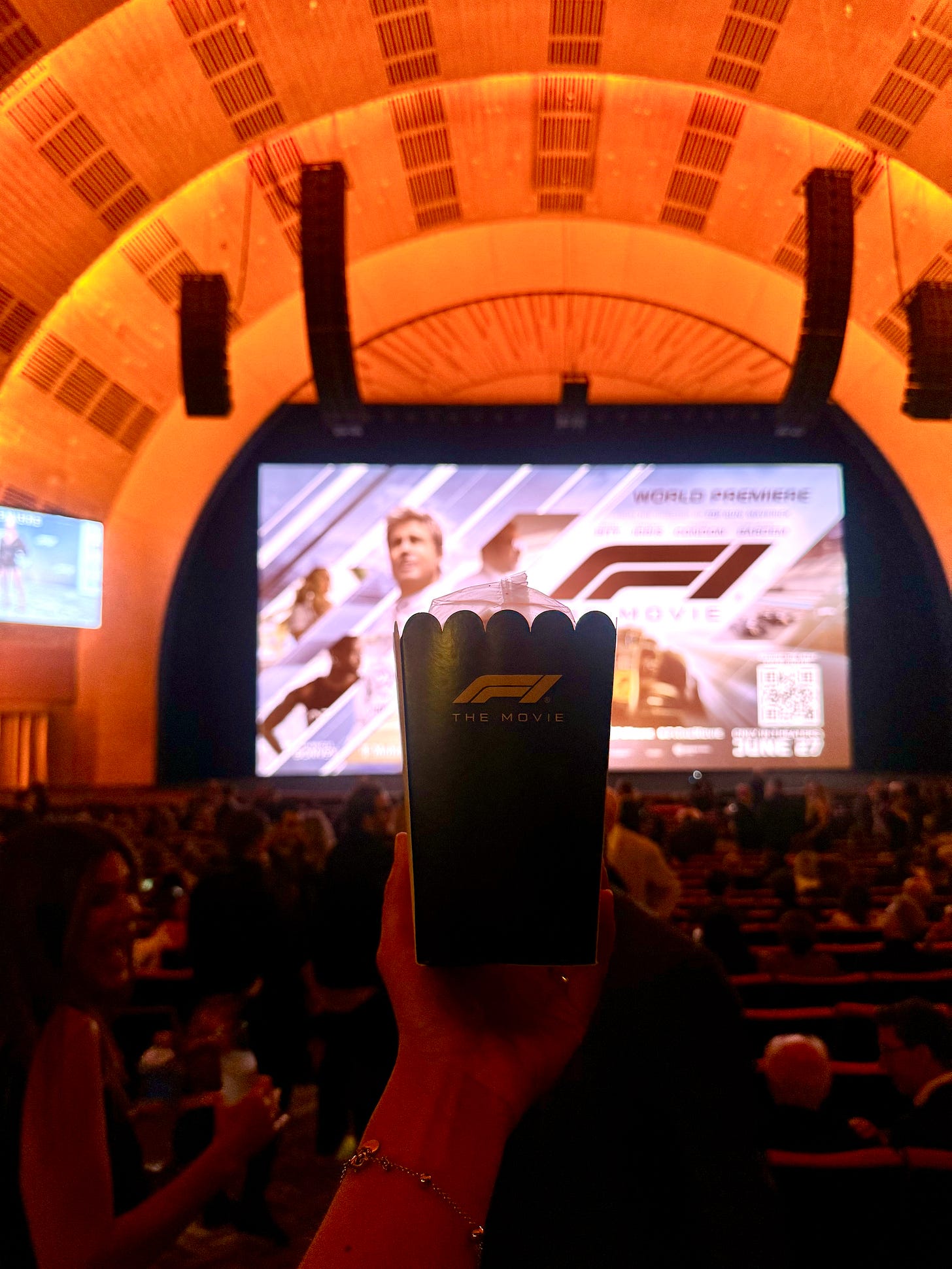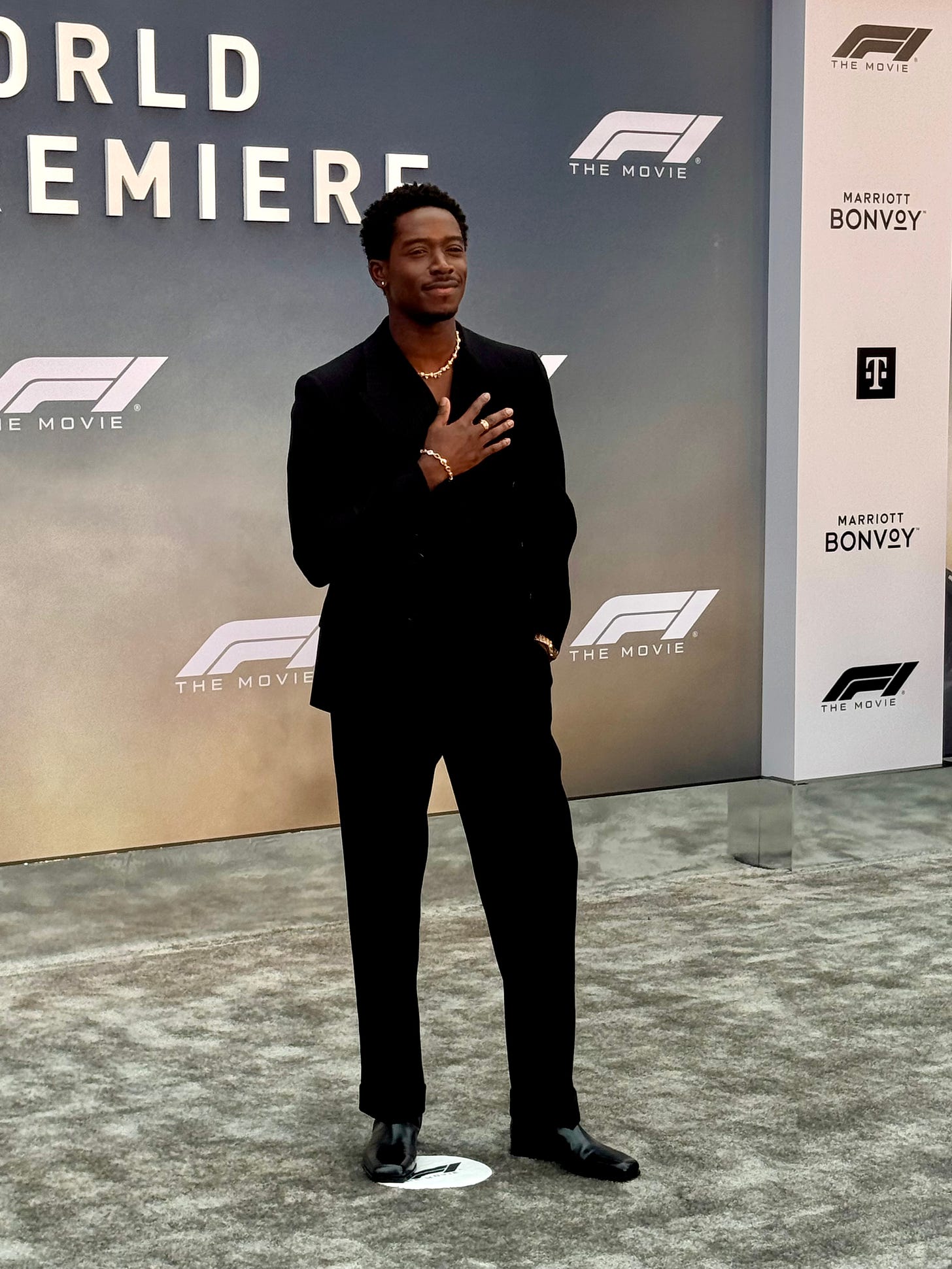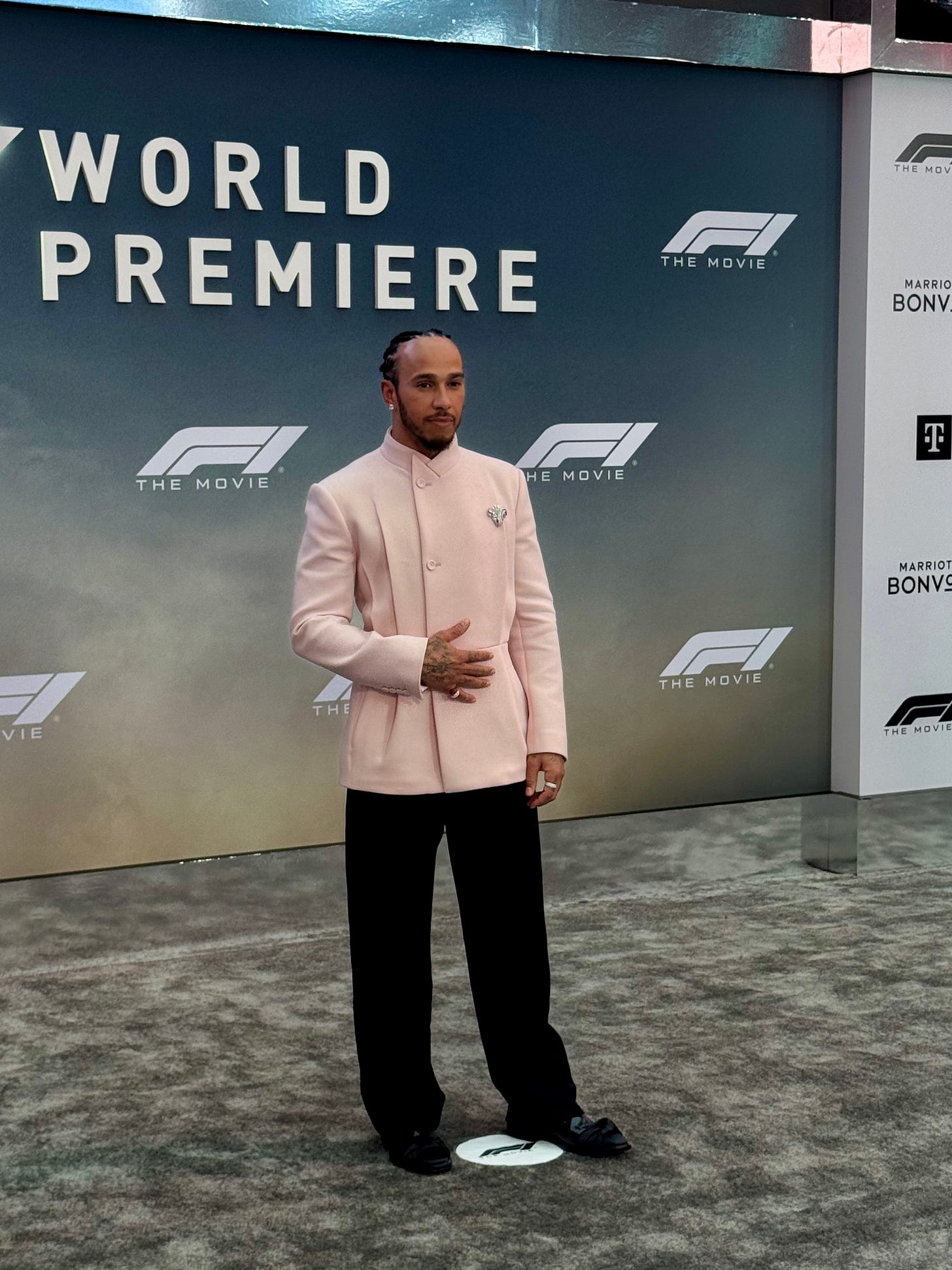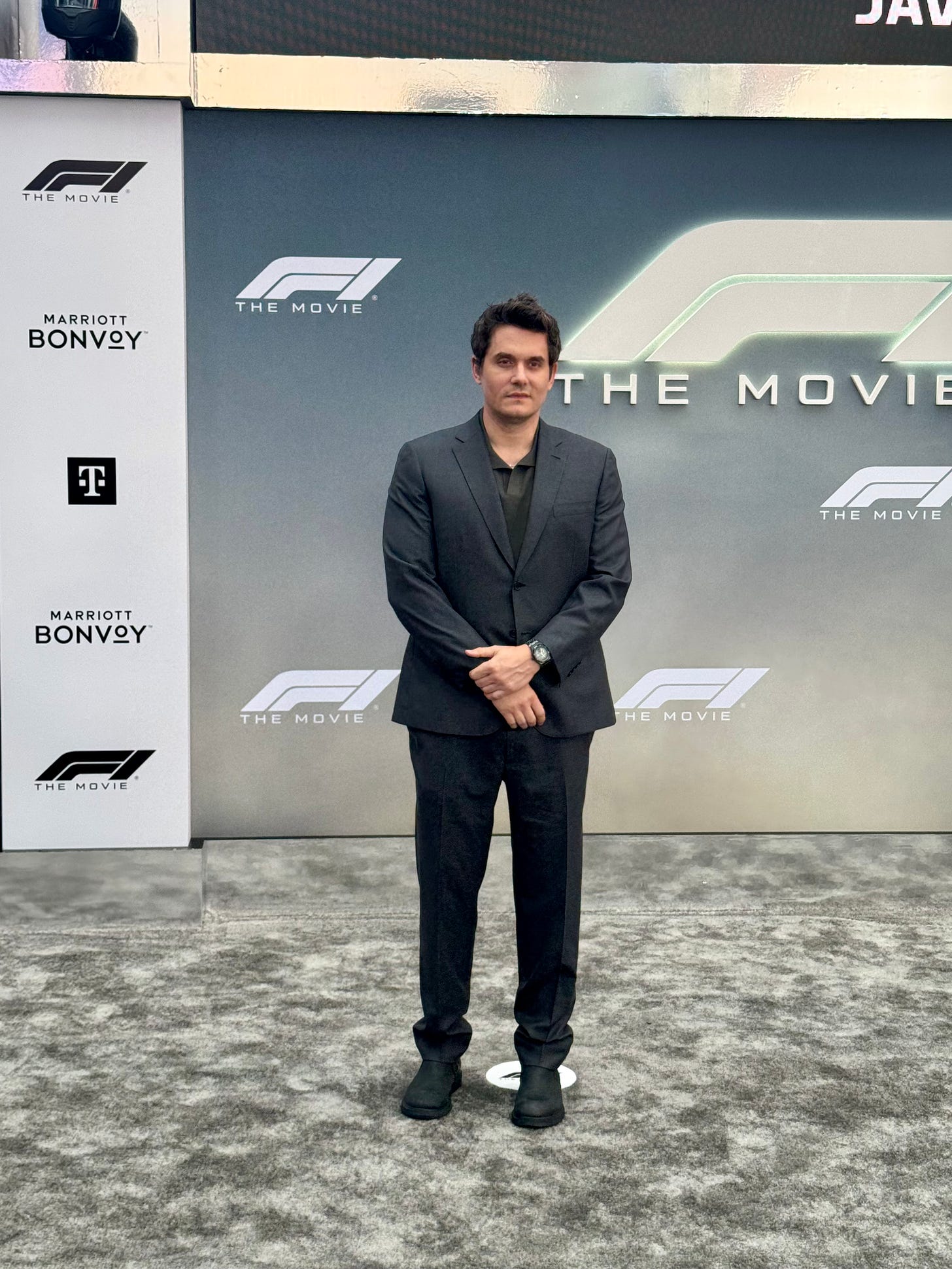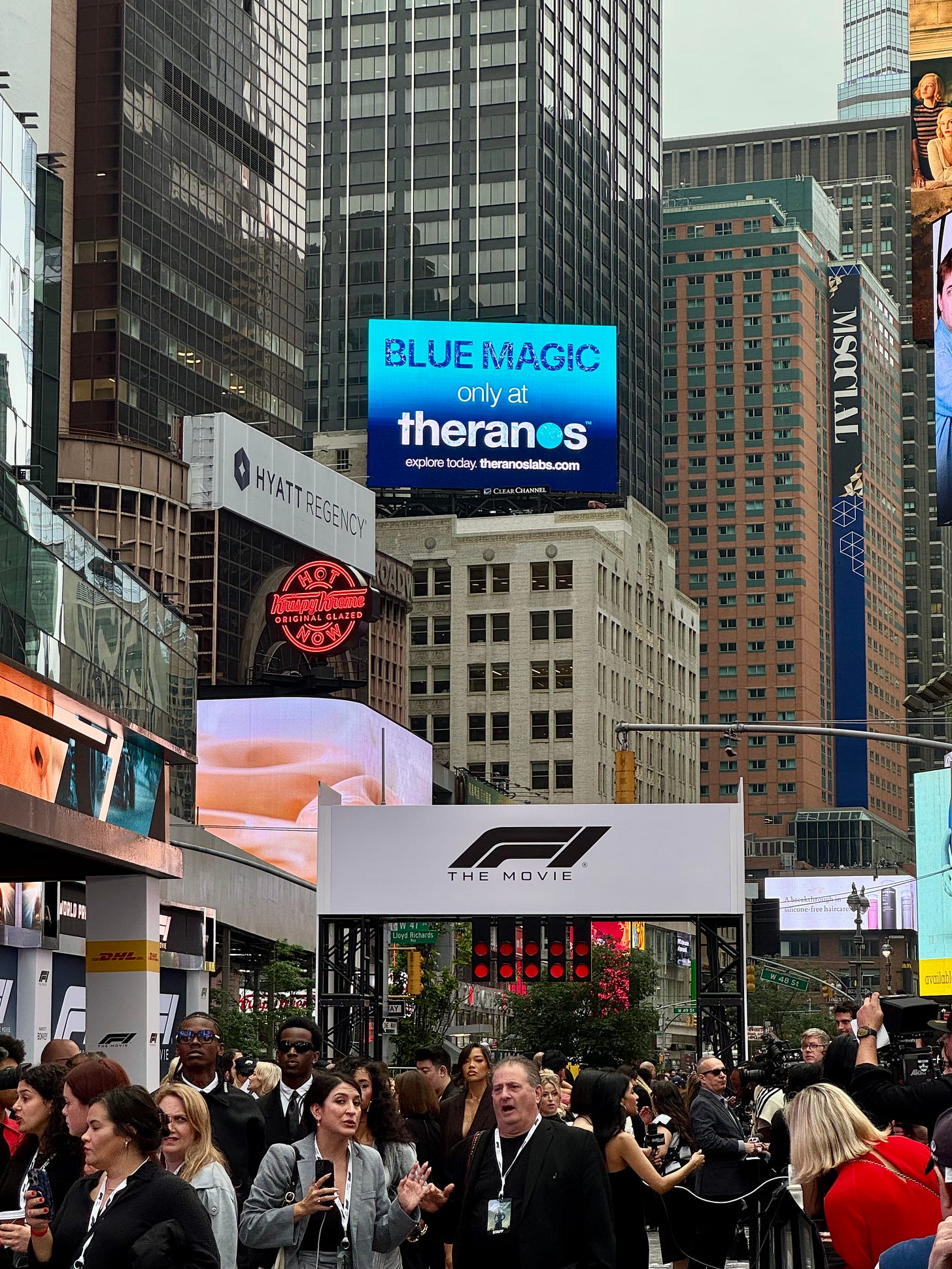Field Notes: F1 THE MOVIE Premiere
Where sport, cinema, and Silicon Valley tried to tell the same story.
Welcome to Field Notes, where my camera roll meets the margins of my notebook. Expect photos, thoughts, and snippets from Grand Prix weekends and whatever scenes I stumble into. This is the more visual, in-motion side of the newsletter—documenting the in-between moments.
You know a moment feels electric when Times Square realigns itself just for it: a mock starting grid planted amid the neon, Brad Pitt and Lewis Hamilton sharing the spotlight, and Tim Cook stepping up like it’s his debut on the podium.
The red carpet belonged to F1 THE MOVIE, but the stakes ran deeper. Three power centers, each myth-making in its own way, came to play: Hollywood (Warner Brothers) produced the film, Silicon Valley (Apple) is distributing it, and Formula 1 lent the world, the trade secrets, and the brand.
The marquee said Formula 1, but the real headline seemed to ask: who owns the future of live culture?
I have a foot in each of these worlds: I work at a talent agency in LA, I run an F1 digital media company, and I’m an MBA student in Silicon Valley. So walking through the barricades that night felt like stepping into a Venn diagram I’d been quietly tracing for years.
In the world of entertainment, sport traditionally owns the stakes. Tech owns the attention. Hollywood owns the narrative. On Monday night in Times Square, they all spoke the same language. Or at least tried to. To me, the most interesting part wasn’t the coordination. It was the subtle power struggle underneath it.
Apple isn’t backing this movie because it’s nostalgic for the sound of a V10 engine. It’s bidding for live sports rights, challenging traditional broadcasters, and turning streaming platforms into arenas that don’t just distribute attention but quantify it. These platforms want the audience, the behavior, and the data.
Hollywood, meanwhile, may embrace outside worlds like sport or social media, but it rarely cedes the spotlight. For all the effort to make the sport cinematic, F1’s real-life athletes are treated as extras in their own ecosystem. It’s a subtle flex: a reminder that visibility doesn’t guarantee centrality, and that in Hollywood, traditional fame still outranks specialized relevance.
The paparazzi I stood next to couldn’t name any of the drivers. A fashion expert’s viral thread on X critiquing their outfits called them “these people.” They (Lewis aside) looked a little out of their element. Motorsport was invited, but not quite in control.
And yet: the film exists. The budget is rumored to be north of $300 million, making it one of the most expensive movies ever made. That level of investment in a movie about Formula 1 is, in itself, a kind of validation. An admission that the sport has arrived. Just not necessarily on its own terms. Once a European institution, F1 now runs on American ambition. From Monaco to Manhattan, the trajectory is clear: F1 may have started elsewhere, but its future looks increasingly American. For better or for worse.
The movie, by the way, is good. Really good. Slick, ambitious, incredibly executed. Damson Idris is electric. Brad Pitt does what Brad Pitt does best. The racing sequences are stunning. My full review comes in Monday’s podcast episode.
But the real story, for me at least, isn’t the plot. It’s the infrastructure behind it.
The business logic. The intent. The coordinated move: F1 wants to be more than a sport. Apple wants to be more than a distributor. Hollywood wants to prove it’s not only still relevant, but in charge. Everyone wants a franchise. The alliances forming now will decide who gets one.
And maybe that’s what this was: not just a premiere, but a proof of concept. That motorsport, rendered cinematically, can move culture. Or at least meet it halfway.
For me, it was a “remember this” moment. Not just because I’d dreamt of going to this premiere since the project was announced. But because it felt like a convergence of media, money, and mythology, all accelerating in the same direction.
Many will write about what this movie means for F1. I’m still thinking about what it means for the future of sport-as-entertainment, and what happens when Hollywood, Big Tech, and global sport all try to co-author the same story.
Here were some of my favorite moments.
Afterparty. Left to right: Joseph Kosinski (Director, F1 THE MOVIE), Eddy Cue (SVP Services, Apple), Tim Cook (CEO, Apple)
Free popcorn.
Damson Idris.
“West Coast business formal.” Attire guidance vague enough to mean sneakers or a sport coat. Even as a West Coast MBA, I had to guess.
Sir Lewis Hamilton, Producer.
John Mayer.
Times Square.


